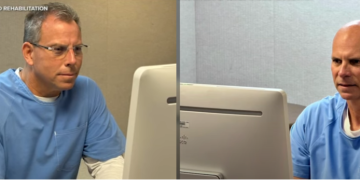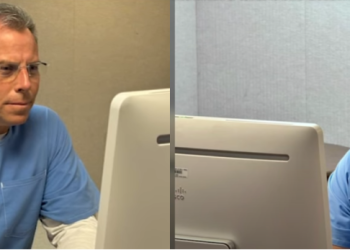We all know about the primary effect of COVID. It kills. When it is in its most efficient state, it can kill in a matter of days. What makes it so pernicious is that it gives you precious little warning. A person can walk around with it for weeks without knowing it, all the while, spreading it to others. By the time they get tested, it is often too late to do anything about it. At the moment, we have two ways to beat it: The first is to lock down until all traces of the virus are past. That is no good. The second is to take one of the free vaccines currently on the market.
Unfortunately, experts are now projecting that due to the shockingly high percentage of people who refuse to take the vaccine, we are not likely to reach herd immunity. So we are going to continue collectively suffering the primary effect of the virus. But that is not the only problem we have to deal with. There are secondary effects of the virus that get little attention in the public conversation that can be just as devastating. Here is a look a three of those secondary effects and a few thoughts on what we can do about them:
Rise in Substance Use
Depression and substance abuse are not the same thing and should never be conflated. But one is often indicative of the other. Throughout the pandemic, lock downs and quarantines were more than they could bear. Lacking their usual means of social expression, they turned to or increased illicit substance use. Many, including teens, lost their lives to this pernicious, secondary effect of the pandemic.
Thankfully, rehab services are available for people who are suffering. You do not have to go through this alone. Not everyone is capable of bouncing back after losing their job, loved ones, and their much needed support system. We do the work of the virus for it when we add to the suffering in the form of stigmatization. No one suffering from secondary pandemic effects should have to suffer again by being singled out and stigmatized. As a society, we can do better — we must do better. Whatever your need, counselors and rehabilitation specialists are standing by and ready to provide assistance.
More Social Bifurcation
Even as more seniors get vaccinated, more people are coming out as vaccine refusers. These are not to be confused with the vaccine hesitant. Those are people who haven’t completely closed the door on treatment, but are also not committing to receive the vaccine, either. Refusers tend to have either political or religious reasons for deciding the vaccine is not for them.
It is important to note that no one is required to take the vaccine and have done nothing illegal by refusing it. But this is causing rifts in some states. Some business owners want to make proof of vaccination a requirement, as do arenas and stadiums. Governors are passing preemptive laws making it illegal for any business owner to require proof of vaccination, in many parts of California this could affect the job market and unemployment too. The key for both sides is to remember that this is not a health political issue, or a religious issue, or even a public health issue. It is a human issue. It is about families, friends, communities, and societies finding the compromises that allow us to live together and stay united while taking care of the people we love. Nothing is more important than that.
A Widening Digital Divide
The digital divide has left millions of school kids behind. This is the opinion of many experts. We already had a digital divide. The pandemic is making it worse. It became immediately obvious that when grade schools told parents that they would have to turn their homes into internet-connected classrooms, many would be left behind. Students from underprivileged families did not have access to the computers and internet connections necessary for the task. Those students failed twice: once by the pandemic and then by the system. If you have extra computers, Chromebooks, or iPads you are no longer using, consider donating them to public schools. We cannot allow basic education to become the latest victim of COVID.
Secondary effects can be as devastating as primary effects. Help those struggling with depression and substance abuse find the resources they need. Respect the private healthcare decisions of the people you love. And do you part to close the divides, digital and otherwise.





















